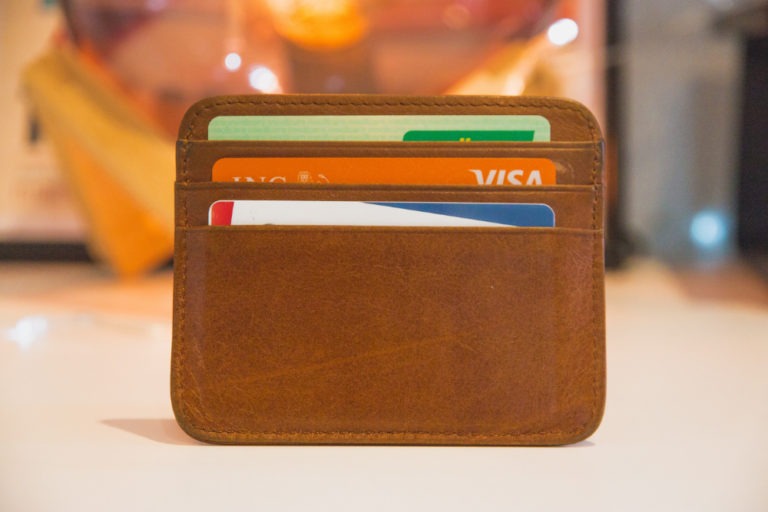How to choose the right credit card
Money Talk is intended to inform and educate; it's not financial advice. Affiliate links, including from Amazon, are used to help fund the site. If you make a purchase via a link marked with an *, Money Talk might receive a commission at no cost to you. Find out more here.
There are hundreds of credit cards out there, often with very similar features.
But if you’ve never had one before, how do you know which is the right credit card for you?
And what’s the point of having one anyway?
In this post, I’m going back to the basics.
Do you need a credit card?
The simple answer is no.
You don’t need to have a credit card if you already have a debit card – and everyone who has a UK bank account does.
But credit cards do come with a number of benefits that debit cards just can’t compete with.
There’s one key caveat, though: you have to use them responsibly.
That means never spending beyond your means and paying off the full balance every month, as otherwise you can easily get into a debt spiral.
The only exception is if your credit card is being used as part of a debt management solution, in which case you should have a concrete plan for paying it off (more below).
Benefits of a credit card
If you use your credit card right, it can offer a few different benefits.
Section 75 rights
One of the benefits of a credit card is the purchase protection.
Under Section 75 of the Consumer Credit Act, a credit card provider is jointly responsible for any breach of contract or misrepresentation by a retailer or service provider.
That means if a product is faulty and the retailer refuses to offer a refund, or if a service provider breaches their contract or goes bust, you can apply for a refund via your credit card provider.
This has been especially helpful during the pandemic, when businesses have gone bust or have refused refunds where they were due.
Section 75 covers purchases of between £100 and £30,000 – even if you’ve only made a portion of the payment using your credit card – and you can claim against a card provider you no longer use.
A couple of years ago I managed to claim a partial refund for my season ticket from Thames Clippers because they were perpetually late, had agreed to refund me but then ghosted me.
I had to show proof of a breach of contract and it took a couple of weeks for them to investigate so it’s certainly not as simple as clicking a button but it was much easier than the months of back and forth I had already gone through.
That’s something worth bearing in mind: you should always approach the vendor for redress first and a Section 75 claim should be your last resort.
Fraud protection
Credit cards are also useful as an extra layer of protection against fraud as if there are any issues, you can block the card straight away before any money comes out of your account.
With a debit card, once the money has gone out of your account, it may be months before you get it back, if at all.
Credit score boost
Over the longer term, if used responsibly, credit cards can help build your credit score and show lenders you’re a trustworthy borrower – both helpful when you want to get a mortgage.
Interest free credit
A standard credit card offers you up to 56 days of interest free credit from when you make the purchase – that money could be earning interest in your bank account.
The interest free credit period can be even longer on balance transfer and 0% interest credit cards.
However, you should only be using your credit card in this way if you’re planning to pay it off in full each month, or have the money to pay off any debts before interests are due.
Otherwise any benefits you gain from the interest free credit will be wiped out by the interest on the debt.
Other credit card perks
Some credit card providers also offer additional benefits to tempt you in, including cashback and reward offers, as well as entry to airport lounges and members’ only events.
American Express, for example, offers additional cashback with certain retailers while the Virgin Atlantic* co-branded Mastercard offers free upgrades once you’ve spent above a certain threshold.
If you travel a lot, it’s also worth looking for a credit card that will let you use it abroad without charging a commission, such as Barclaycard’s Rewards credit card.
You can also get free travel insurance, like those offered through the American Express Platinum card*.
Pros and cons of different types of credit cards
There are a few different types of credit cards around and sometimes they combine more than one feature so the below is intended as an overview only.
You can also get credit cards that have no special features that are intended to just give you purchase protection.
Reward and cashback credit cards
As their name suggests, reward and cashback credit cards remunerate you in some way when you use them to make a purchase.
Reward credit cards are generally co-branded and you earn points or miles that can only be spent with the brand in question.
An example would be the Amazon* credit card.
If you work out the point or miles value of reward credit cards, they’re in theory worth more than most straightforward cashback cards.
But you are restricted to the brand so it’s worth thinking about whether it’s the right reward for you.
You can get companion flight vouchers if you spend enough on your BA American Express card* for example, but it wouldn’t be much use if you don’t have anyone to travel with or simply can’t travel before the voucher expires.
Cashback credit cards are better if you don’t want to be tied to a single brand. You generally get 0.25% to 5% of your spending back – essentially a discount on your purchases – although it can be a year before that credit is applied to your account.
Both of these cards require fairly good credit scores but they’re great as everyday cards.
Balance transfer credit cards
Balance transfer credit cards allow you to transfer over the outstanding balance from an existing credit card.
You have to pay a fee for the transfer, but then you get 0% or below average interest rate for a set period of time.
This can be a useful tool if you have a sizeable credit card debt that you’re trying to pay off.
You’ll add to your debt burden when you transfer your balance over but you won’t accrue any interest charges on your balance during the introductory period, which means you have a bit more time to pay off your debt.
But this is only worth doing if you have a solid plan in place to pay off that balance as otherwise your debt will just keep on growing.
0% interest credit cards
0% interest credit cards are quite similar to balance transfer credit cards and they’re often combined into one.
You get 0% interest rate for the duration of an introductory period, which means you can have an outstanding balance without being charged for it.
On a normal credit card, interest is applied to any outstanding balance that’s unpaid when due – but if you pay the balance in full then there’s no interest to pay.
A 0% card is particularly useful for buying a big ticket item where you might need a couple of months to pay it off in full – like a new kitchen, for example.
Some people also use it to save money. So instead of paying off the balance each month, they would put that money in a savings account to accrue interest.
You still have to repay a portion of your debt each month, and the amount will vary from person to person based on their credit score.
After the introductory period, interest will be applied to any outstanding balance so make sure you clear your debt before then.
Credit building credit cards
Everyone who applies for a credit card is offered an interest rate and minimum payment amount that’s tailored to them.
The numbers are based on your reported salary as well as your credit score.
Credit cards also have eligibility criteria and the better the card, the higher the requirements.
And if you have a poor credit history, unfortunately it means you’ll be rejected by most credit card providers.
But there are some credit cards that are specifically designed to help you build up your credit score.
They always have much higher interest rates and low credit limits to encourage you to spend within your means.
And over time, as you continue to prove your credit-worthiness, you can increase your credit limit and may be eligible for credit cards with a lower interest rate.
Read this: How to build your credit score without a credit card (or borrowing)
How to choose the right credit card for you
There are hundreds of credit cards out there but you can narrow down the selection by thinking about your desired features first.
Then it’s about looking at the finer details like whether there’s an annual charge or a fee to use it for spending abroad.
The interest rate, or Annual Percentage Rate (APR), and the minimum payment requirement are both important if you don’t plan to pay off the full balance each month, but less so if you religiously pay it off in full.
And before you apply, make sure you check the eligibility criteria to assess the likelihood of you being offered the card.
Every time you apply for a credit card, a check is made on your credit file and if you apply for too many in a short space of time, it will look like you’re desperate for credit (a sign of financial distress) and you’re more likely to be rejected.
And if you’re rejected, this will be noted in your file too and will impact the likelihood of you being able to apply for other credit.
This post was originally published in August 2021. It was updated in July 2024.
Pin this for later






